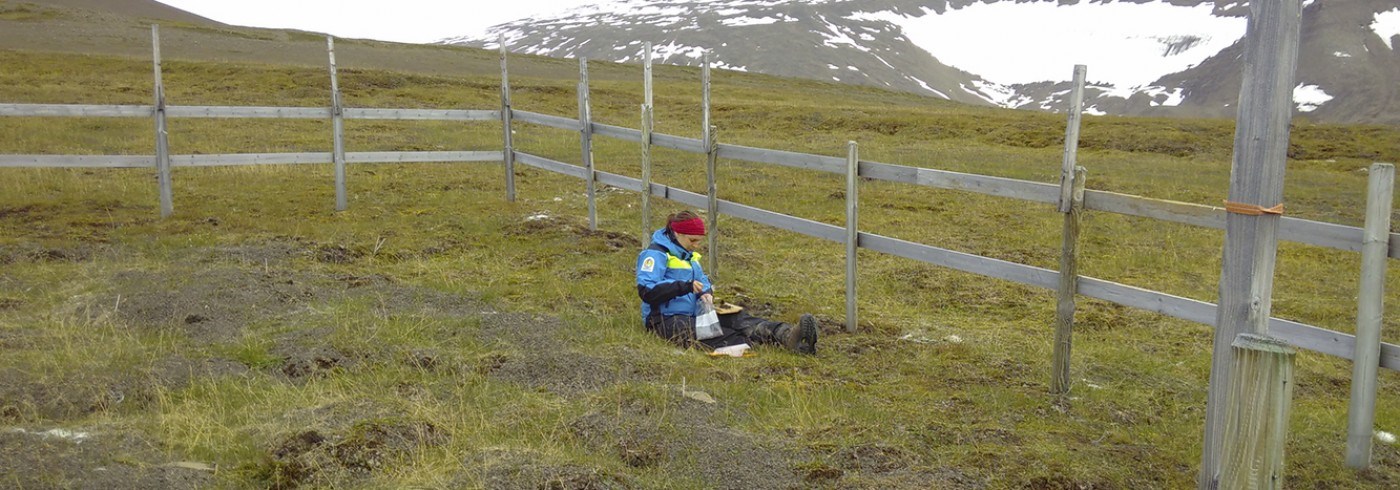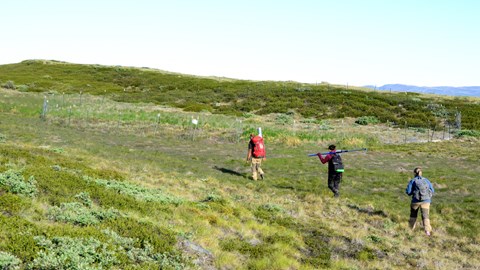Pan-arctic study of the effects of reindeer on tundra vegetation 2018

In the summer of 2018, researchers from Umeå University will do reinventories of existing exclosures on Greenland, Svalbard and Alaska to investigate how reindeer affects the tundra vegetation.
Reindeers are one of the herbivores that has the greatest impact on vegetation in the Arctic. Reindeer grazing can, for example, decrease the spreading of trees and tall shrubs. Reindeers also affect the nutrient cycle of the vegetation, ecosystem processes and how the vegetation responds to climate change. In order to determine future vegetation patterns and biodiversity in the Arctic, it is important to study the interaction between plants and herbivores.
In this research project, researchers study the effects of reindeer on tundra vegetation. In several places in Scandinavia and the Arctic, researchers have built exclosures that keep reindeers out. This makes it possible to compare the exclosures to areas where herbivores have been able to graze as usual. The researchers are, for example, examining vegetation growth, nutrient cycling, and plant community composition, inside and outside the exclosures. That way it’s possible to see the long-term effects of reindeer grazing on the tundra vegetation and the nutrient cycle in the Arctic.
This summer’s fieldwork is a continuation of last year's inventory in Semmeldalen on Svalbard.

In the Arctic, almost all ice-free land is grazed by wild or domesticated reindeer. Reindeer grazing affects the Arctic landscape by controlling what type of plants and what plant species that are there. For example, they can hold back the spread of trees and tall shrubs and in general graze down tall vegetation. They also affect nutrient cycling, ecosystem processes and how the vegetation and ecosystem responses to climate change. To better understand what future vegetation patterns and biodiversity might look like in the Arctic, it is therefore important to study the interaction between plants and herbivores.

